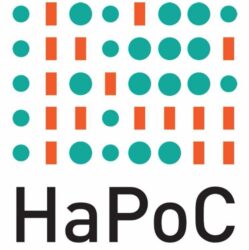*** Please advertise widely — Apologies for crossposting ***
Simulations Special Issue [DEADLINE EXTENSION]
THE SOCIETAL AND ETHICAL DIMENSIONS OF COMPUTER SIMULATIONS (S18-2)
Guest Editors:
– Juan M. Durán (TU Delft)
– Jeroen van den Hoven (TU Delft)
Computer simulations are a fundamental method for the progress of scientific and engineering research. Jim Gray (2007) called them the third paradigm of research, along with theory, experiment and Big Data (the first, second and fourth paradigm respectively). While the specialised literature has extensively focused on epistemological, ontological and methodological issues of computer simulations (Humphreys, 2004, Winsberg, 2010, Morrison, 2015, Durán, 2018), less has been said on the social and ethical dimensions of computer simulations (Brey 1999, 2008, Tolk and Ören, 2017).
The purpose of the special issue “The societal and ethical dimensions of computer simulations” is to address core questions about the role and use of computer simulations in scientific and engineering practice, as well as their influence in society, democracy, and education, among other contexts. To this end, we invite philosophers, educators, sociologists, engineers, scientists and all researchers interested in studies on computer simulations to submit their work to this special issue (for a list of possible topics, see below).
This special issue of SIMULATION (http://journals.sagepub.com/home/sim) addresses critical concerns in the actual practice and use of computer simulations in scientific and engineering research. To this end, we invite researchers invested in answering these problems to submit to this special issue. Potential topics include, but are not limited to:
– Ethics:
• Code of conduct
• Bias simulations, democracy, and justice
• Irresponsible uses of results of simulations
• The profession of designing, programming, and using computer simulations
– Values for design:
• The accountability of designers, programmers, and users of computer simulations
• Responsible innovation with computer simulations
• Shaping policymaking in the light of computer-based research
• Values, uncertainties, and distrust in simulation models
– Education:
• Including methods from computer science in scientific and engineering curricula
• Educating engineers and scientists to simulate-first build-later
– The future of science and engineering:
• Computer simulations as the third paradigm of research
• New forms of scientific and engineering practice
• Computer simulations, AI, and Big Data: the new frontiers of science and engineering
Submission Guidelines: All papers should be developed, formatted and submitted based upon the editorial guidelines provided in the instructions for authors for “Simulation: Transactions of the Society for Modelling and Simulation International,” which can be accessed from (https://us.sagepub.com/en-us/nam/journal/simulation#submission-guidelines). The authors should choose the Article Type as “Special Issue “at the first step of the submission process and put “Special Issue: S18-2 THE SOCIETAL AND ETHICAL DIMENSIONS OF COMPUTER SIMULATION in the title and cover letter of your submissions. The process of review and publication is the same as the regular issue of “Simulation: Transactions of the Society for Modelling and Simulation International.”
Due Dates:
NEW submission deadline: September 30, 2019.
If you have questions, please contact: j.m.duran@tudelft.nl.
References:
Brey, Philip. 1999. “The Ethics of Representation and Action in Virtual Reality.” Ethics and Information Technology 1 (1). Kluwer Academic Publishers: 5–14.
Brey, Philip. 2008. “Virtual Reality and Computer Simulation.” In The Handbook of Information and Computer Ethics, edited by Kenneth Einar Himma and Herman T Tavani, 361–84.
Durán, Juan M. 2018. Computer Simulations in Science and Engineering. Concepts – Practices – Perspectives. Springer.
Humphreys, Paul W. 2004. Extending Ourselves: Computational Science, Empiricism, and Scientific Method. Oxford University Press.
Morrison, Margaret. 2015. Reconstructing Reality. Models, Mathematics, and Simulations. Oxford University Press.
Tolk, Andreas, Tuncer I Ören, eds. 2017. The Profession of Modeling and Simulation. Wiley.
Winsberg, Eric. 2010. Science in the Age of Computer Simulation. University of Chicago Press.
Dr. Juan M. Durán
TU Delft
Department of Values, Technology and Innovation
Faculty of Technology, Policy and Management
Jaffalaan 5
2628 BX Delft – B 4.310
The Netherlands
2019 Herbert A. Simon Award – IACAP
juanmduran.net – Academia.edu
